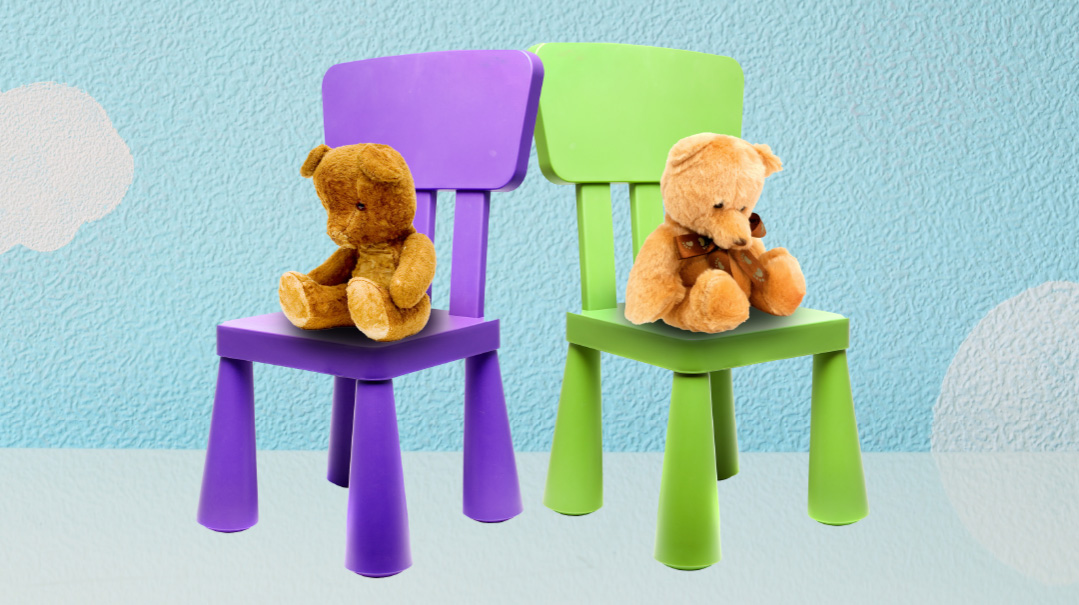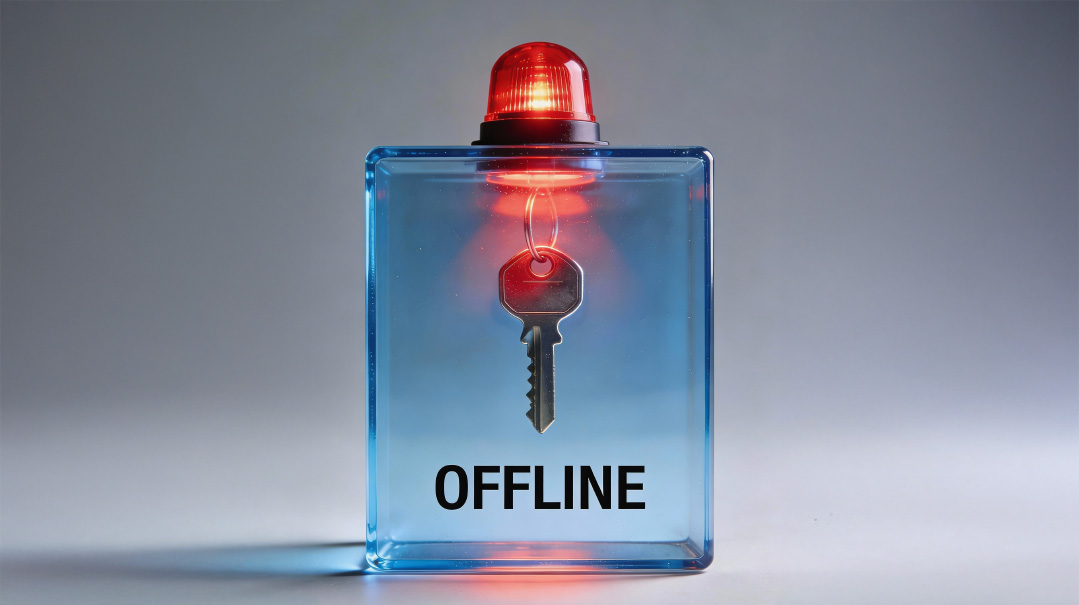A Friend in Need
| May 9, 2023I was doing a favor for a neighbor in crisis — so why was I the target of so much resentment?

Shevy: I’m the one working so hard; why are you all so uptight?
Tova: You’re doing something special, but our kids are paying the price.
Shevy
I was in the middle of cooking supper when I heard knocking. I waited for about five seconds, hoping one of my kids would get it, then wiped my hands on my apron and opened the door. It was Rikki, my neighbor.
The two of us were friends — we’d lived in the same development for years —and I greeted her warmly, noting that she looked stressed.
“I need a favor,” Rikki said.
“Sure, what is it?” I asked. Maybe she wanted to send the kids over for the afternoon, or have one of my daughters babysit tonight?
Rikki was choosing her words too carefully. “So, you know that Shmuel got laid off recently?” She paused a moment, then plowed on. “Anyway, baruch Hashem, he found a job. Yesterday. And he’s starting next week.”
“That’s amazing!” I said. I was so happy for them, and I knew the rest of our close-knit development would be delighted to hear the news, too. “So, what’s the favor?”
Rikki sighed. “So you know how Shmuel used to do the carpools and stuff every morning? Well, his new job is in the city… and he has to leave super early. Like, 7 a.m. And I don’t drive. So it’s a huuuge headache, arranging how each of the kids is gonna get to school…”
So that’s what she wanted! “That’s so stressful, Rik. I wish I could help… but I don’t think my carpool has space. I can ask, though…”
“No, no, I’ve managed to sort the older kids out,” she said hurriedly. “It’s about Yoni. My husband used to drop him off at playgroup on his way to work. But now he won’t be home at that hour anymore… and I have to switch playgroups.”
I felt my shoulders tense.
“Shevy, please, I know it’s midyear and all that, and Yoni’s a few months younger than the rest of your group, but would you please, please take him for the rest of the year? He’s mature for his age, I think he’ll be fine, and it would be a huge, huge favor for me. I honestly have no idea what I’m going to do otherwise.
“I just have no way to take him across town every morning,” she finished plaintively.
I closed my eyes. A huge favor, indeed.
I have a playgroup for younger three-year-olds, I close registration for the upcoming year shortly after Rosh Chodesh Cheshvan, then spend the rest of the year fielding calls and refusing mothers. I feel terrible saying no, but I know I can’t take more than I can handle — everyone loses out that way. So my group was full.
Besides, Rikki’s Yoni had just turned three — he was younger than the rest of my group.
And yet, Rikki… was a friend. A neighbor. And she was desperate. What would she do if she couldn’t get her toddler into a playgroup nearby? Keep him home, together with her colicky four-month-old, while she worked part-time? I knew she needed this.
But I had lots of strong personalities this year, and I’d worked really hard to get the toddlers into a routine, settle them down as a class of sorts. One extra kid could really rock the boat.
And I never, ever said yes midyear — or any time after registration was full. Setting a precedent like this would just be asking for trouble.
“Let me think about it,” I said to Rikki.
“Sure, okay, fine, no problem,” she said. “Just, do you know when you’ll know? Because his current playgroup morah has someone to fill the slot, but they have to know tonight. If they don’t take it, I have to find someone else, or continue paying her — whatever, I just, it’s stressful. If you think you could take him in… you have no idea what a chesed it would be for me.”
It would be. Playgroup crises are insanely stressful. I know that. Especially now that it’s all become so cutthroat. Grab your spot by Rosh Chodesh Cheshvan, or miss registration and you’re doomed. People fighting over spots, booking their kids two years in advance, trying to push in a friend or sibling…
I was a playgroup morah, for goodness’ sake. Somehow, in recent years, that has given me an inordinate amount of power.
“Shmuel Nagel came over to me during Maariv,” Meir told me later that day. “Something about his wife and you and the playgroup? I couldn’t follow, he just sounded pretty desperate.”
“I know. I spoke to Rikki.” I filled him in on the situation. “What should I do? You know I don’t take more than 14 kids. My assistant only comes part-time, and I just can’t. I say no to everyone who asks me to squeeze in just another one. But… it’s Rikki.”
“Maybe you can make it work for her?” Meir said. “Look, she’s a neighbor, a friend, and it sounds like they really, really need it. You know Shmuel was out of a job for a while; it’s amazing that he got something. They don’t have the money, she needs to have her kids out in order to work in the mornings… it’s a chesed, really.”
My mind whirled. I wanted to help her — I really did. But then I thought of the playgroup, the first hour or two of the morning until my assistant came, the last part of the day before pickup time. It was hectic. Fourteen kids were a lot, 15 even more. Could I handle it?
Yoni didn’t seem like the easiest kid, the kind to sit and play by himself for hours. But he wasn’t hyperactive or anything. Maybe it would be okay?
I had a policy, but a friend was in crisis.
Did that change things?
I bumped into another neighbor, Devora, on a grocery run that night. “Shevy! Good to see you.”
“Likewise.” I maneuvered my cart side by side with hers. “What’s doing? How was Yom Tov?”
“A distant memory,” she laughed. “Listen, Shevy, I’m so happy we met, I wanted to speak to you. About Rikki.”
I must have made an involuntary grimace, because she said quickly, “I know, I know, you have your policies, you can’t have too many kids in the playgroup, but she was telling me what’s going on, and between you and me, she’s pretty desperate. Their finances…” She glanced around, lowered her voice a fraction. “They’re not in great shape. She told me she needs to take on more hours, even with Shmuel’s new job. And her baby is impossible… Yonina Miller, who lives next door to Rikki, told me they hear the baby screaming every single night.”
I knew. I knew all of that. But I was tempted to ask Devora why she couldn’t watch Rikki’s toddler every morning.
“Look, I don’t want to mix in, but honestly, it’s one child, just a couple of months—”
“Plus day camp,” I said automatically.
“Right, plus day camp. I know your group is full. But can’t you add Rikki’s Yoni just for the rest of the year? She really, really needs it.”
Rikki, her husband, my husband, now Devora. And I was sure the other neighbors would jump in as well. Our development was super close-knit, and everyone looked out for everyone else. I loved it — usually. When I hurt my leg last year, we had a meal train for a full month, and my kids had built-in playmates at all hours of the day (and night too). But it also had a downside, and that was the pressure to keep everyone happy.
How could I turn Rikki down? How could I face her every day, knowing she’d begged and pleaded with me to take her toddler, that she was totally without options if I didn’t step in?
When Rikki’s sister called me, telling me how Rikki’d had to give up her place at the other playgroup since she had no way to send her child there each morning, and was stressed to the limit and they were desperate, desperate, desperate, and it was mamash pikuach nefesh to help her out — I caved.
“Okay. I’ll take him. I’ll email Rikki the details.”
Rikki showed up the next morning looking exhausted. “I promise, you’re saving my life,” she said as she handed me Yoni’s bag. “I had maybe two hours of sleep last night; if I don’t get a nap in this morning, I would probably collapse. Yoni’s so excited for Morah Shevy’s playgroup, right?”
And with a kiss and a wave, she was gone.
Yoni walked inside confidently — he knew my house, we were neighbors, after all — but when he saw the other children, he hesitated. A dozen unfamiliar faces, all of them engrossed in their toys… he stuck his thumb in his mouth and stayed right next to me, watching.
Okay. It was a new environment; these things took time.
The doorbell rang. Next drop-off. “Yoni, why don’t you play?” I offered him a puzzle and hurried to the door. Yoni scurried out after me.
Tova Morris glanced at him, clinging onto my skirt. “He’s yours?” she asked.
“Who — oh, Yoni? No, my neighbor’s. He’s joining the playgroup.” I found myself blushing a little. Everyone knew I didn’t take new kids midyear.
“Oh, really?” Tova’s eyebrows rose. She gave a tight smile and turned her attention to her three-year-old, who was already heading inside. “Have a great day, Moish! See you later.”
Yoni stuck to me like glue the entire first day. He was, I discovered, prone to bouts of inconsolable crying when overwhelmed — which happened pretty often that day.
He’s new, he’ll settle, it’ll be fine, I told myself.
When my assistant, Adina, arrived at 11 a.m., I was relieved. Yoni was sitting on the floor, crying (again), because someone had knocked over his tower of blocks.
“Can you take care of Yoni? I want to start circle time,” I said.
She looked at him curiously. “New kid?”
“Yup.”
She shrugged. “Okay, sure. Yoni, I’m Morah Adina. Wanna show me what you’re playing?”
Yoni calmed down after that, but not for long.
Adina spent most of the morning smoothing things over — when he wanted Esty’s chair, when his drink spilled, when someone else was chosen first in an activity….
By the end of the day, I was exhausted. I’d been handling the other 14 children practically on my own. I had an assistant for a reason.
“How was he?” Rikki asked me when she came to pick him up, looking only slightly more energetic.
“You know… taking a little time to adjust,” I said. Yoni saw his mother and promptly burst out crying again. I resisted the urge to nudge them both out the door and slam it shut. “He’s a little unsettled, but hopefully he’ll get used to it.”
“I’m sure he will. It’s the first day, right?”
It was the first day, but I’ve been a playgroup morah for years, and I’d never seen a first day quite like this one.
S was right to be nervous, because the situation didn’t ease up over the next few weeks. Yoni continued to dissolve in a puddle of tears at the slightest provocation, and Adina and I were constantly on edge, trying to intervene before other children got upset. A couple of mothers mentioned something to me — kids coming home talking about Yoni crying, Yoni taking their chair, whatever — and while I assured them that things were under control, I was wrung out and exhausted.
“Are you sure it’s all okay? My son keeps saying things…” Tova Morris asked me one day, peering over my shoulder as Yoni yanked his bag away from another child, crying, “Morah! She touched my bag!”
“Yes, it’s fine,” I told her, hurriedly running over to soothe little Chaya’s bruised ego (“I didn’t touch it! I wanted my bag!”).
“If you say so,” Tova sniffed, taking her son’s hand and leaving.
Rikki arrived next. As always, she thanked me over and over, telling me I’d saved her, but the truth was, I could barely look her in the eye. It sounded crazy, one extra kid making such a difference, but my job had been demanding before, and this had tipped me over the edge. And now the other parents were upset with me, after a whole year of building the relationship and doing everything for their children.
That was the other problem — the other parents.
They didn’t all say something directly, but I sensed their judgment. Sometimes, I opened the door to find two or three mothers talking in low voices together, quickly stopping when I saw them. Other times, I just felt the negative vibes. The ones who used to schmooze easily and thank me now just walked off after a curt thank-you. And then there were the mothers who were more outspoken.
“Things have changed since you took that extra kid,” Sarah Goldstein said one day. “I’ve always been happy with your playgroup, Shevy, but now…” She made a dismissive hand motion.
But now, what? Her child was getting plenty of attention, playing and learning well, Yoni hadn’t taken anything from him — I was the one struggling with the extra work. Yes, I was tired, yes, the other children saw Yoni crying a lot, yes, I spent a fair amount of time defusing Yoni’s overwrought emotions, but I’d taken him in for a reason.
I’d taken him in because his mother, my friend, was desperate; to keep the peace in our development; and to help a family in distress.
Why were these mothers so upset? If they were in Rikki’s situation, they’d want someone else to do exactly the same for them.
If I could tell the other mothers one thing, it would be: I said yes because the new kid’s mother was desperate, and I’m the only one paying the price.
Tova
Nothing like the Monday morning quiet.
The beautiful, beautiful quiet, after two days of having all the kids home…
I’d gotten almost everyone off and I was already dreaming of the hazelnut coffee I would brew when I get home — maybe I’d even find some babka left over from Shabbos to enjoy with it (who am I kidding, there’s never babka left over, but even a cookie would do).
Just one more drop-off — three-year-old Moish at Morah Shevy — and I would be done till pickup time.
I hummed as I pulled into the development. I love Morah Shevy, she’s a great playgroup teacher. She’s also jam-packed full. You literally have to register a year in advance. I was lucky to get in; my sister called one day later and Shevy turned her down.
I was a veteran parent at Morah Shevy’s and I tried to push; I called a bunch of times to see if any slots had opened up, and even asked her if she’d consider adding my niece once the year began, but no go. I felt bad for my sister, but I understood; she had to stop somewhere.
I parked and knocked on the door, Moish in tow. It sounded a little hectic inside — usually, everyone was playing quietly — but okay, it happens with toddlers.
Morah Shevy answered the door after a minute, looking a little on edge. She didn’t greet us with the usual warmth and energy, and her attention was distracted by this kid pulling on her skirt.
A kid I didn’t know.
“He’s yours?” I pointed. I didn’t know Shevy had a kid that age, but maybe he was home sick or something?
“No… he’s a neighbor. Joined the playgroup,” she explained, looking uncomfortable.
My eyebrows shot up.
Joined the playgroup? Now, after Pesach? What about the whole maxed-out-at-14, refusing to go over, not even considering my niece because she was full already….
I was still annoyed when I left the gym later that day, and shared my feelings with Shira, my gym buddy.
“Maybe she just figured the year is almost over, and it would be no big deal to add someone?” she speculated.
“I don’t know, it seemed like a big deal to me,” I said, thinking of the kid clinging to Shevy’s skirt. How was she supposed to do anything like that?
As the days went by, I kept noticing the little things. Shevy opening the door for pickup with a tired smile, her loud yawns as I dropped off, the parshah project she forgot to send home one week….
Ordinarily, I’d brush all this aside — everyone’s entitled to a bad day — but now I couldn’t help but pin it on the extra child. If 15 were too much for her, why did she accept him?
(And if they weren’t, a little voice whispered, why didn’t she take my sister’s daughter? No, she was full, full, full — but not too full for this Yoni, who was apparently a force to be reckoned with.)
We heard about Yoni at home. It sounded like he cried. A lot. About the toy he wanted and the chair he wanted and the lunch he wanted and, and, and….
“Do you play with Yoni?” I asked Moish one day.
“Yes, but then he cries to Morah Adina and she gives him all the best toys,” he told me.
Ouch.
A friend of mine, Ahuva, also sent to Morah Shevy. She said something to me too. “Apparently there’s been some fighting in gan or something? New kid?”
“I don’t know about fighting, but he definitely seems pretty high maintenance,” I said. “Honestly, I don’t know why she took him.”
“I think it’s her neighbor. And the mother was desperate. Apparently, she said he’s an easy customer.” Ahuva laughed. “I guess people have different definitions of easy. I mean, he’s not violent or anything. But, like, the kid who’s always crying and needy is also hard. In a different way.”
“Hard on the other kids,” I said, thinking of Moish. He was a happy-go-lucky, easy-money-for-Morah kind of kid. Why should he get sidelined for this other child?
“I know what you mean.” Ahuva wasn’t laughing anymore. “I mean, I chose Morah Shevy even though it’s a ten-minute drive for me, and I pay her prices because she’s well-known, she’s amazing, and I want the care she gives. But now that she’s fuller than full, I feel like the kids are losing out.”
So it wasn’t only me.
I said something to Morah Shevy the next day. “I heard it’s been a bit challenging with this new kid…?” I half-said, half-asked, letting the sentence dangle.
She looked a little startled. “What do you mean?” she asked.
“Well,” I gestured. “I mean, Moish is always talking about him, Yoni cried, Yoni wanted the toy… you know.”
“Oh,” Shevy said, relaxing a little. “Well, I guess you get the full report then. Look, he’s still… adjusting, but it’s not affecting the other kids. If he cries, we take care of it. I’m always right there with him. It’s not that he hurts the other kids or anything.”
Okay, no one’s getting hurt, I thought, but what about all that time, energy, and attention? To a kid who shouldn’t have been in the playgroup to begin with?
How could she have taken that on?
I met Ahuva, and another mother, Sarah Goldstein, one day as we walked up to Morah Shevy’s front door for pickup.
“I think it’s a fine line,” Ahuva was saying. “I mean, the kids are eating, playing, basically happy… I don’t know if we should say anything.”
Sarah wasn’t as sanguine. “Well, I’m not happy. Shuey was practically toilet trained and now he had four accidents in one week. And why? Because they didn’t take him to the bathroom in time. I’m willing to bet it’s because of that new kid who’s always crying.”
Ugh, toilet training gone awry, that’s the worst. We all spent a few moments commiserating.
“I just feel like, what will it do to say anything? She took the kid, it’s too late.”
“She shouldn’t have taken him,” Sarah said, adamantly. “Very nice, her neighbor was desperate. But hello? There are other options. Go further away. Pay a private babysitter at home. I don’t think Shevy should have caved to the pressure and taken him at our expense.”
Shevy answered the door that minute, and we all went quiet.
I was committed to stay out of it. There were only a few months to go, and how would it help to say anything now, when it was too late to do anything?
But when I dropped Moish off the next morning, instead of the cheery music that always wafted from the main room, I heard the sound of a little boy wailing again — and felt the tension of a harried morah in place of the happy vibes and energy she’d always had in the past. I gritted my teeth.
If I could tell Morah Shevy one thing, it would be: How can you take another child at the expense of the ones already in your group?
(Originally featured in Mishpacha, Issue 960)
Oops! We could not locate your form.







